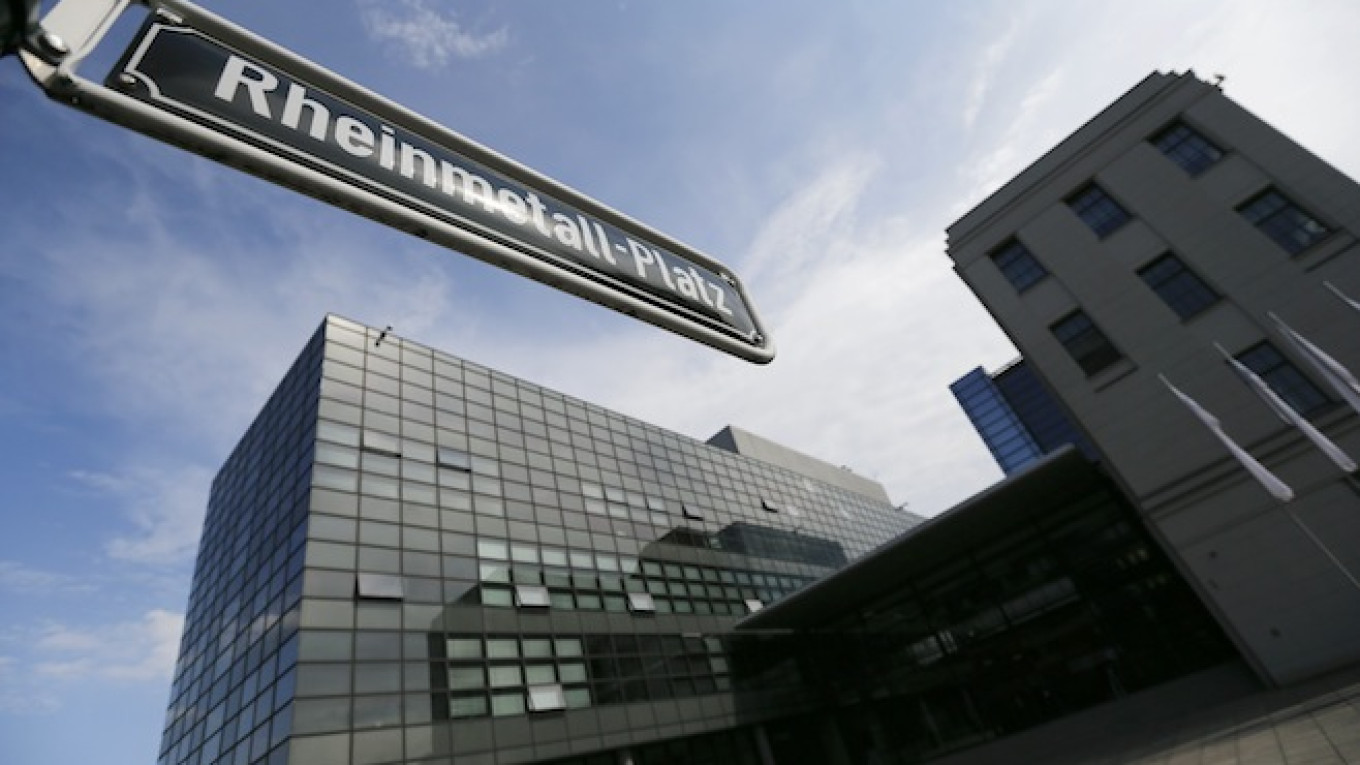Russia will sue German defense contractor Rheinmetall after the German government permanently halted the company's export of combat simulation and training equipment to the Russian military, a Russian deputy defense minister said Tuesday.
Germany initially froze the export of the remaining equipment destined for a Russian training facility after Russia annexed Crimea in late March, but decided to permanently cancel the 100 million euro ($134 million) deal on Monday.
Deputy Defense Minister Yury Borisov told RIA Novosti that the deal was regulated by contract, "and naturally we will defend our interests." As such, the Defense Ministry has asked the government to prepare a lawsuit against Rheinmetall.
Rheinmetall's culpability is questionable: It was not the company but the German government that made the decision to pull the plug on the remainder of the deal. German Economy Minister Sigmar Gabriel said Monday that "in the light of the EU sanctions, permission to export a combat training center has been revoked."
That said, German newspaper Sueddeutsche Zeitung reported later on Tuesday that Rheinmetall denied knowledge of the decision to revoke the export licenses for the remaining simulation equipment and asserted that negotiations with the German government are ongoing.
German law stipulates that the government must compensate firms for revoking export licenses that have already been issued.
The training center, located in Mulino, outside Nizhny Novgorod, features high-tech combat simulators able to prepare 30,000 trainees for a variety of battlefield scenarios per year.
With 95 percent of the training equipment already delivered, it is not clear what effect this will have on the facility.
Lietuanant-General Yury Petrov, head of the Russian military's department of combat training, told RIA Novosti that Russian equipment would be used to substitute the remaining German equipment, and that the facility would be brought online for testing on Sept. 1. It is expected to be ready for service by the end of the year.
Rheinmetall built a similar training center for the Russian military in 2009 for 97 million euros ($130 million).
The decision to cancel the remainder of the Rheinmetall contract comes after the EU launched an arms embargo against Russia as part of its latest round of sanctions last week. The measures came after Malaysia Airlines Flight MH17 was downed in eastern Ukraine, where the EU accuses Russia of fomenting conflict.
The embargo is likely to hurt an ongoing drive by Russia to modernize its military, as it no longer has access to high-tech European military equipment. However, the EU stopped short of preventing France from following through with the delivery of the first of two Mistral-class amphibious assault warships later this year.
See also:
Germany Blocks Sale of Combat Simulators to Russia
Contact the author at bizreporter@imedia.ru
A Message from The Moscow Times:
Dear readers,
We are facing unprecedented challenges. Russia's Prosecutor General's Office has designated The Moscow Times as an "undesirable" organization, criminalizing our work and putting our staff at risk of prosecution. This follows our earlier unjust labeling as a "foreign agent."
These actions are direct attempts to silence independent journalism in Russia. The authorities claim our work "discredits the decisions of the Russian leadership." We see things differently: we strive to provide accurate, unbiased reporting on Russia.
We, the journalists of The Moscow Times, refuse to be silenced. But to continue our work, we need your help.
Your support, no matter how small, makes a world of difference. If you can, please support us monthly starting from just $2. It's quick to set up, and every contribution makes a significant impact.
By supporting The Moscow Times, you're defending open, independent journalism in the face of repression. Thank you for standing with us.
Remind me later.


